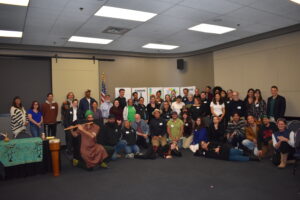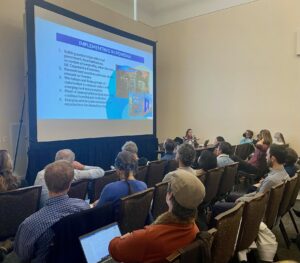BLOG
EcoCiv Blog

Jainism, Environment, and Nonviolence Conference
On April 21-23, 2024, the Institute for Ecological Civilization co-hosted the Jainism, Environment, and Nonviolence Conference in Long Beach, California with California State University – CSU, Long Beach. I traveled to California as the Project Manager for the Ecological Mindset Project, a project that aims to introduce the Dharma traditions to a wider audience and

Let’s Talk about Ecospirituality
Is there a “correct” way for us, as people, to connect with and conserve the environment? Modern ecological stewardship relies heavily on scientific insights for guidance on how humanity can live in harmony with nature, yet Indigenous wisdom has often embraced a more intuitive and sacred approach with great success. Within the movement for climate

EcoCiv at the California Just Economy Summit
At this critical juncture in history, our economies must change with our changing climate to ensure a sustainable future for all. What could it look like to design an economy that simultaneously serves people and planet? This was the question addressed recently at the inaugural California Just Economy Summit that EcoCiv co-hosted with the California Wellbeing

EcoCiv Reflects on the UN Water Conference
In March 2023, the UN hosted its first water conference in nearly 50 years and the Institute for Ecological Civilization was invited to attend! The conference focused on the UN’s Sustainable Development Goal 6: ensure access to water and sanitation for all. Water security & management is a topic often neglected in global spheres, but

EcoCiv at the 7th California, Climate & Agriculture (CalCAN) Summit
Across the U.S., collaborative partnerships are being built on the belief that long-term land tenure is key to food security and climate justice. As new land tenure strategies based on this belief are emerging, there is a need for collaborative networks of new entry farmers, service providers, researchers, nonprofits, and government agencies to support these

Learning for Impact Initiative Launch
EcoCiv has recently launched a new initiative, Learning for Impact (LFI). This initiative represents an intentional effort on EcoCiv’s part to become a “learning organization”. Sitting within the IDEAS Hub, it is linked closely with the organization’s Monitoring, Evaluation, and Learning (MEL) team, but it aims to approach the MEL process in a holistic sense.
